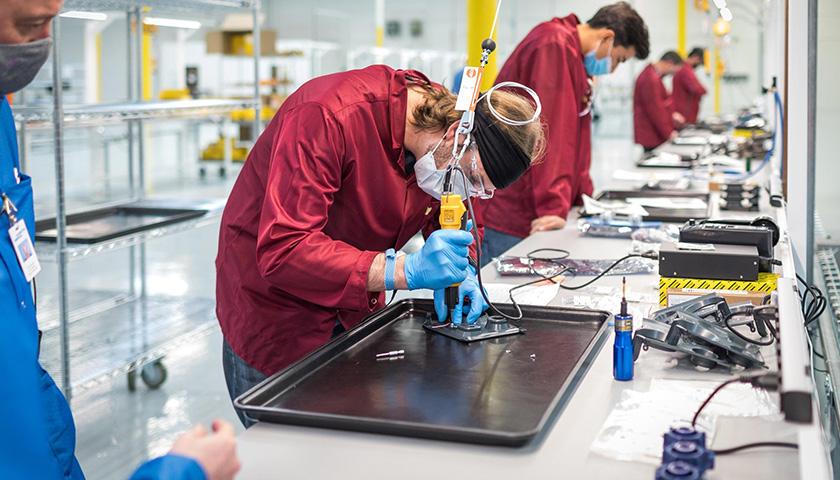by Scott McClallen
General Motors announced Thursday it’s offering voluntary buyouts to some salaried U.S. employees.
The automaker is looking to cut $2 billion in fixed costs by 2024 as the company transitions its manufacturing operations to produce electric vehicles.
GM said in a filing with the Securities and Exchange Commission that it plans to offer lump-sum payments to U.S. salaried employees with at least five years of experience.
The filing says: “The Program is expected to drive cost efficiencies by (i) reducing vehicle complexity and expanding the use of shared subsystems between existing internal combustion engine and future electric vehicle programs, (ii) focusing investment in growth initiatives to accelerate near-term benefits, (iii) decreasing discretionary spending across substantially all parts of the Company, and (iv) reducing salaried staff through attrition, primarily in the United States.”
GM expects to incur up to $1.5 billion of pre-tax employee separation charges and up to $300 million in pre-tax, non-cash pension curtailment charges.
GM spokeswoman Maria Raynal told The Center Square in an email:
“General Motors is announcing a Voluntary Separation Program for all U.S. salaried employees with at least five years of service and all global executives with at least two years of service. The voluntary program offers eligible employees an opportunity to make a career change or retire earlier.”
“We are offering three packages based on level and service to the company. We feel this program provides generous benefits and a unique opportunity to individuals and their families.”
In 2022, Michigan taxpayers promised GM $824 million for new sites to build EVs, which require 30 percent less human labor than vehicles with internal combustion engines.
“We’re committed to electric vehicles for all,” GM’s current website header says.
However, with the average EV price at $65,291, according to Kelley Blue Book, for a depreciating asset, EVs are still either too expensive or unwanted by many Michiganders. Only 25,181 EVs are registered statewide. Meanwhile, the average price for a gas-powered vehicle was $48,100. Moreover, many used gas-powered cars cost between $5,000 and $15,000.
A sparse charging network, a driving range that can halve during frigid weather, and reduced towing capacities also stand as a barrier to adoption.
A Detroit Regional Chamber statewide poll released recently concludes 46 percent of Michigan voters support the EV transition while 44 percent of respondents oppose it – with 33 percent of respondents saying they strongly oppose EVs.
Among the reasons offered for opposing the transition to EVs are the insufficiency of the state’s current electrical grid (19.6 percent); cost-prohibitive (18.4 percent); lack of infrastructure (13,3 percent); negligible environmental benefits (5.5 percent); safety and reliability issues (5.5 percent); technological shortcomings (5.5 percent); not good for long-distance trips (4.7 percent); and they are not sustainable (4.3 percent).
– – –
Scott McClallen is a staff writer covering Michigan and Minnesota for The Center Square. A graduate of Hillsdale College, his work has appeared on Forbes.com and FEE.org.
Photo “General Motors Employees” by General Motors.





